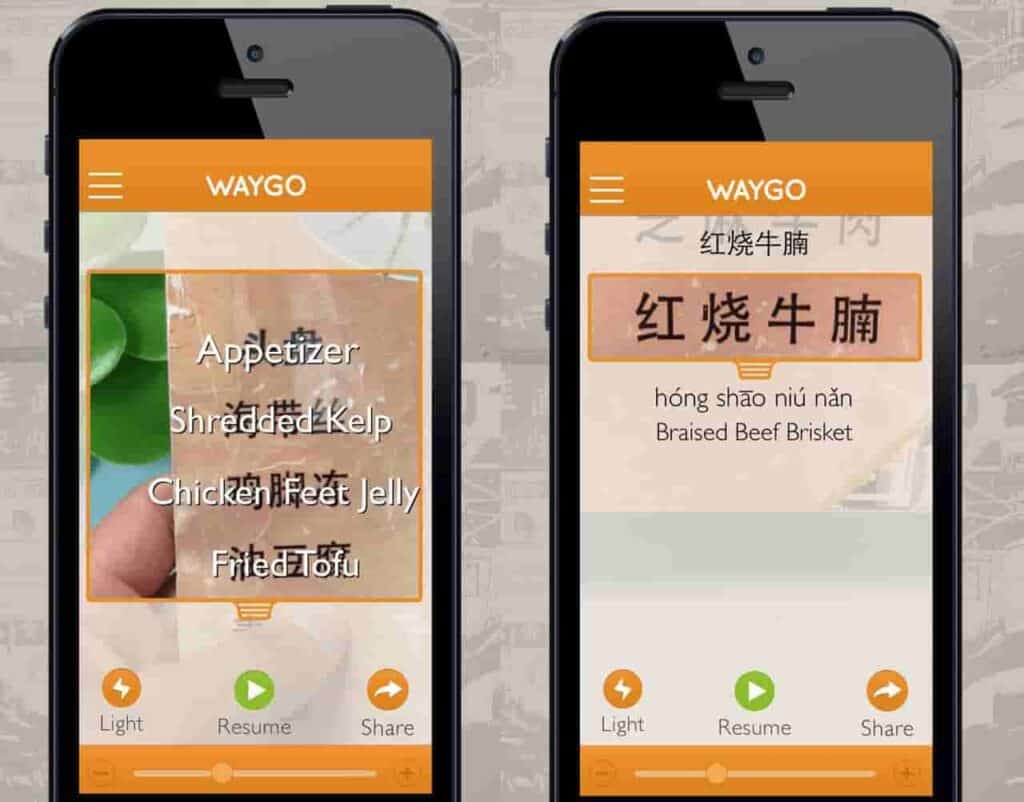As the standard of English increases in mainland China, it becomes easier for foreigners to live there without speaking Mandarin. English has been a compulsory subject in schools across China since the 1990s, so the majority of young people can speak at least basic English.
I’ve met many foreigners who’ve lived in China for over a decade who can’t speak any Mandarin. During my first couple of years living in China, I couldn’t say anything other than ‘hello’ and ‘thank you’ in Chinese.
However, this was in downtown Guangzhou, a first-tier city of China with every foreign convenience you could hope to see. When I lived in rural Guangxi province, I would rarely encounter English speakers.
Can you live in China if you don’t speak Mandarin Chinese? Yes, you definitely can. In fact, the vast majority of foreigners I know living in China are unable to speak basic Mandarin. An inability to speak the language will create more challenges in smaller cities and remote areas. If you’re living in large Chinese cities, you will encounter many more English speakers and English speaking services.
Do I need to learn Mandarin in China?
Learning Mandarin to a proficient level takes a long time.
For a lot of people coming to China for a short stay of a year or two, learning anything more than basic Mandarin might be seen as a waste of energy. For example, if you’re in China for a gap year as an English teacher, why would you put so much effort and time into learning a language you know you’ll never use again?
If you’re arriving in China with a dream to work for a Chinese company and build a life here, learning the language makes a lot more sense.
Everyone’s reasons for learning Mandarin and coming to China will be different. Your personal need to learn the language depends entirely on your purpose, goals, and desires. However, as mentioned previously, it’s possible to live in China comfortably without speaking any Mandarin Chinese.
Although I was once an English teacher and was living a very comfortable life in China with no Mandarin skills, I got fed up with being unable to communicate with most people around me.
I thought to myself, ‘How hard can it be?’ I decided to go and learn Chinese at Sun Yat-Sen University in Guangzhou. You can read about my experiences in Studying at a Chinese University: What You Need to Know.
But how do you know whether I’ll need to learn Mandarin as a foreigner in China? What kind of foreigner are you?
Foreigners in China: Categories

I’ve met hundreds of foreigners during my time in China, and they can be placed into different categories.
- Travellers – Generally tourists who come to China from a few days to a few weeks.
- Short term expats – Those who come to live, study and work in China for 1-2 years. The majority of foreigners here are made up of teachers, students, and employees for international businesses who are placed in China.
- Long term expats – These people can be subdivided into two other categories:
i) Long term ESL teachers.
ii) Career transitioners. A lot of these people start in China as English teachers, but through up-skilling and learning Mandarin they are able to get jobs in different sectors. I know quite a few foreigners who went on to get lucrative jobs at big companies in China after learning Mandarin to a HSK 5-6 level. - Immigrants. This isn’t really a possibility for foreigners in China, but if we’re going by the dictionary definition, this is someone who intends to live here for life. They’re usually married with kids and they might have a business in China.
Now, why am I telling you this?
If you’re in the third and fourth categories, I really think that learning Chinese would make sense for you and make your life in China much easier.
Learning Chinese takes work, but you don’t have to be a genius to get to a proficient level. This site is loaded with information about how to learn Mandarin Chinese, so if you’re interested, get started with the following resources:
- How To Learn Mandarin From Scratch (From a Guy Who’s Done It)
- 100+ Mandarin Learning Resources: Everything You Need for Fluency
- Learning to Read Mandarin Chinese | A Powerful Strategy for Newbies
- Learn Chinese for FREE | Free Apps, Sites, Courses, and Media
- Learning Chinese: The Best Textbooks For Beginners
- The 21 Best Apps For Learning Mandarin Chinese
English Proficiency in China
“Can people speak English in China?”
This is a common question I get from people who haven’t been to China yet.
The short answer is yes, but English proficiency isn’t as good in China compared to other countries you might have been to.
There are a few things to keep in mind when it comes to a lot of Chinese and their ability to speak English.
- The closer you are to tourist destinations, trade routes and affluent areas, the more English speakers there’ll be. In contrast, the further off the beaten path you go, the more you’ll need Chinese language skills or a good quality translation app.
- The Chinese are shy. Even though the level of English in China continues to improve, the pervading social trait of shyness does not. Even if you meet someone who is able to speak English, they might not want to attempt speaking through fear of making a mistake.
- The Chinese are proud of their education. For every shy person in China, there are loads more who’d love to practice their English with a foreigner and prove how helpful and knowledgeable they can be. The Chinese are very friendly for the most part, despite the rising nationalism.
How can learning Mandarin help me in China?
Besides the obvious of being able to talk to locals in their mother tongue, there are a number of ways learning Mandarin that can really improve your quality of life here.
Keep in mind that you don’t need to be completely fluent to access the benefits of the language.
- Eating out – Most authentic local restaurants in China won’t have an English menu or English speaking staff. Playing the game of ‘point at the menu and hope’ gets old quite quickly. Learning to read menus can really improve your culinary experiences in China.
- Shopping online – Shopping online in China is big business and using Taobao can seriously improve your quality of life here… or empty your bank account. One of the two. Learning Mandarin means you’ll be able to understand deals, customise orders, and communicate with sellers. You’ll be able to complete returns and exchanges, too.
- Daily tasks – Telling your Didi (Chinese Uber) driver your location or telling the delivery guy where to leave your package are very helpful skills to have. Trips to the bank, bartering at the local market, communicating with your community 保安 (security) are things which, once again, make your life in China more convenient.
- Self reliance – Having to ask a Chinese friend or colleague to do everything for you can be a challenge for the more independent minded person. The more Mandarin you learn, the more you’ll be able to take care of yourself.
- Social life – Chinese culture is deep and complex, but you don’t need a doctorate in anthropology to know that learning basic Mandarin can help you form bonds with locals here. Playing drinking games in bars, having chats with your local store attendant, talking to the 阿姨 (cleaner), etc. Being able to do all of these things make your day (and theirs) a happier one.
How can I live in China without knowing Mandarin?
I’ve written a more in-depth article offering help and advice for those with no Mandarin skills coming to China – 11 Tips for Travelling To China Without Speaking Chinese.
But one of the main ways to overcome the language barrier here is to make use of translation apps. The following are my favourite translation apps which have stood the test of time.
Translation apps
3 of the best free translation apps for China are Google Translate, Microsoft Translator, and Baidu Translate.
Google Translate – Although Google services are blocked in China, it’s possible to download the Google Translate English – Chinese text file before you arrive (or in China using a VPN) so you can use the text file offline in China. However, the offline version can only translate texts. You’ll need to be connected to the internet via a VPN to use other features such as the voice translator.
Baidu Translate – Baidu is China’s top search engine, so it only makes sense that they’ve thrown their own translation app into the mix. In the app store, you might be put off by all of the Chinese (as it’s geared towards a Chinese audience) but it’s actually really easy to use. Baidu is a China-approved app, so you won’t ever have to worry about it getting blocked.
Microsoft Translator – Microsoft Translator can be integrated with other Microsoft applications, like using the Microsoft Translator API. The browser versions can translate only text and web pages, but the apps can work with real-time speech, images, and text. You are able to use Microsoft Translator offline by downloading the text-to-text offline language file. Microsoft translator has a split-screen conversation mode which is really cool.
Waygo – Waygo is an awesome text scanner that’s perfect for ordering in restaurants with no English menu.

Another great thing about WayGo is it can be used offline. The only downside is that the free version only provides 10 translations per day, so if you want to use the app extensively, you’ll have to pay a one-off fee of £5.99 for unlimited translations of Chinese. In my opinion, it’s totally worth it!
Summary
If you’re moving to China and you don’t speak any Mandarin, try not to worry too much. I’d say the vast majority of foreigners living in China don’t speak Mandarin, and if you’re close to a major city, you’ll be quite comfortable.
However, that doesn’t mean you shouldn’t learn Mandarin! Check out the further reading section below to get started.
Further Reading
- 100+ MANDARIN LEARNING RESOURCES: THE FASTEST WAY TO FLUENCY
- LEARNING CHINESE: 15+ LISTENING TOOLS PERFECT FOR BEGINNERS
- THE ULTIMATE GUIDE TO LEARNING CHINESE IN CHINA
- THE ULTIMATE GUIDE TO TEACHING ENGLISH IN CHINA FOR NEWBIES
- THE 24 BEST MANDARIN STUDY RESOURCES FOR BEGINNERS
- 14 REASONS WHY YOU SHOULD LEARN MANDARIN CHINESE
- IS IT EASY TO LEARN MANDARIN CHINESE?
- THE 21 BEST APPS TO LEARN CHINESE
- STUDYING MANDARIN AT A UNIVERSITY IN CHINA: WHAT YOU NEED TO KNOW
